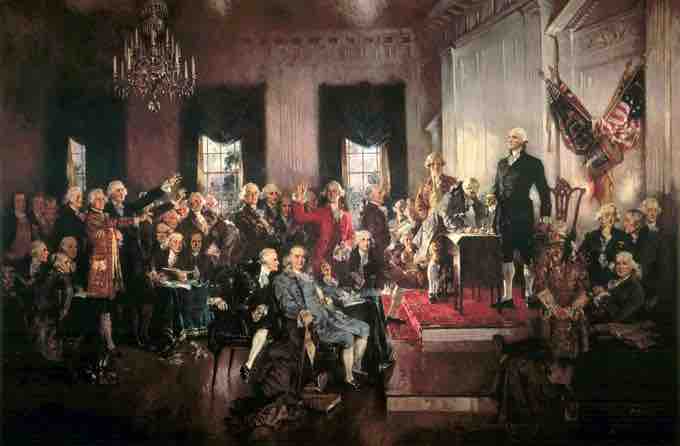The Bill of Rights
The Bill of Rights is the collective name for the first ten amendments to the United States Constitution . These limitations serve to protect the natural rights of liberty and property. They guarantee a number of personal freedoms, limit the government's power in judicial and other proceedings, and reserve some powers to the states and the public. While the amendments originally applied only to the federal government, most of their provisions have since been held to apply to the states by way of the Fourteenth Amendment.
The Bill of Rights of the United States of American
The United States Bill of Rights, which are the first 10 amendments to the US Constitution, and the core of American civil liberties.
History of the Bill of Rights
The Constitution may never have been ratified if a bill of rights had not been added . Most state constitutions adopted during the Revolution had included a clear declaration of the rights of all people, and most Americans believed that no constitution could be considered complete without such a declaration.

Signing the Constitution
This painting depicts the signing of the US Constitution. Without the addition of the Bill of Rights, it is unlikely that the Constitution would have been ratified.
The amendments that would become the Bill of Rights were introduced by James Madison as a series of legislative articles . They were adopted by the House of Representatives on August 21, 1789, and came into effect as Constitutional Amendments on December 15, 1791, through the process of ratification by three-fourths of the States.
Portrait of James Madison
James Madison, "Father of the Constitution" and first author of the Bill of Rights
Congress passed twelve amendments, yet only ten were originally passed by the states. One of the two rejected amendments dealt with the size of the House of Representatives, and the other rejected amendment provided that Congress could not change the salaries of its members until after an election of representatives had been held (it was ratified 202 years later, becoming the 27th Amendment).
Original Exclusions from the Bill of Rights
The Bill of Rights implicitly and legally only protected white land-owning men, excluding American Indians, people considered to be "black" (now described as African Americans), and women. These exclusions were not explicit in the Bill of Right's text, but were well understood and applied. Gradually, these exclusions were lifted by subsequent interpretations or amendments, so in contemporary times, the Bill of Rights protects all classes of people.
Protected Rights
- The First Amendment protects freedom of religion, speech, press, assembly and petition.
- The Second Amendment protects the right of Americans to bear arms.
- The Third Amendment prevents the government from quartering (housing) soldiers in civilian's homes during peace time without the consent of the civilian.
- The Fourth Amendment provides protection from unreasonable search and seizure.
- The Fifth Amendment establishes rights related to due process, double jeopardy, self-incrimination, and eminent domain.
- The Sixth Amendment sets out rights of the accused of a crime: a trial by jury, a speedy trial, a public trial, the right to face the accusers, and the right to counsel.
- The Seventh Amendment protects the right to a trial by jury for civil trials.
- The Eighth Amendment prohibits excessive bail and cruel and unusual punishment.
- The Ninth Amendment protects rights not specifically enumerated in the Constitution. Some people feared that the listing of some rights in the Bill of Rights would be interpreted to mean that other rights not listed were not protected. This amendment was adopted to prevent such a misinterpretation.
- The Tenth Amendment confirms that the states or the people retain all powers not given to the national government. This amendment was adopted to reassure people that the national government would not swallow up the states.